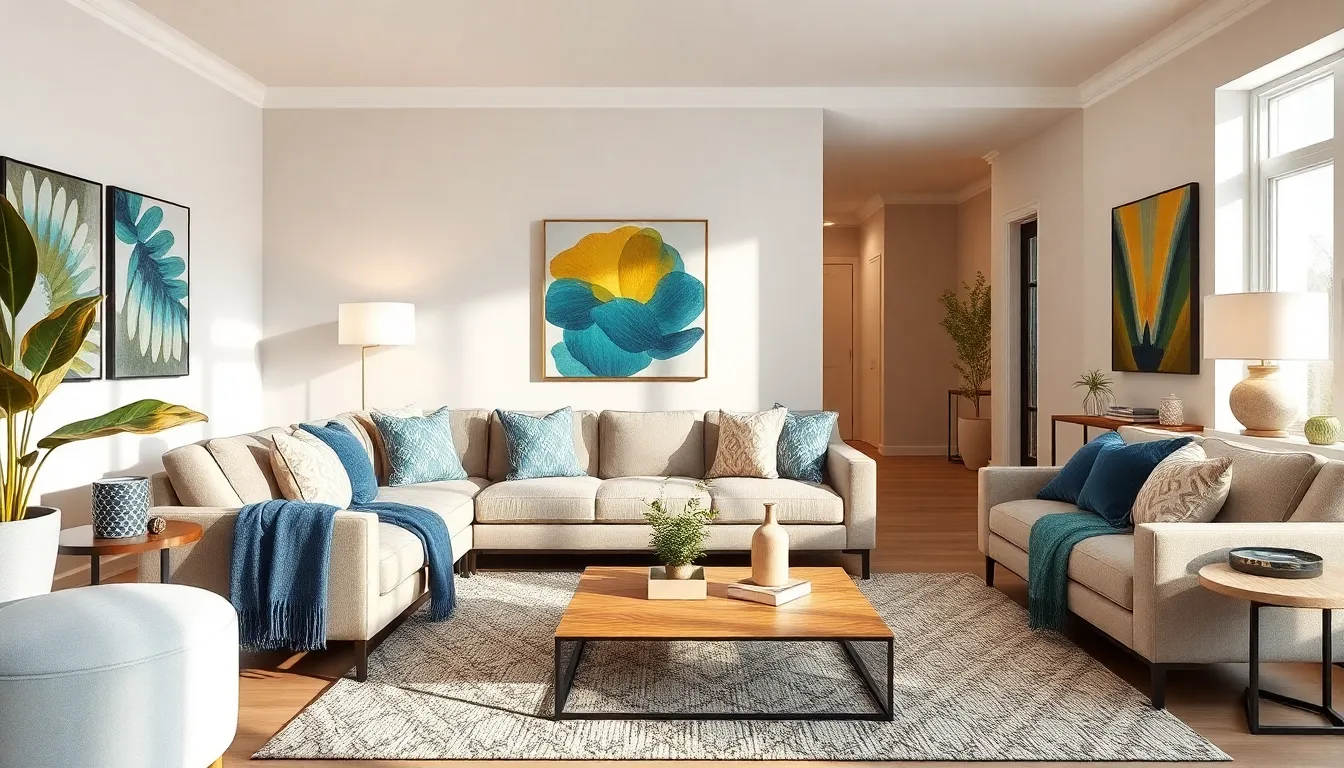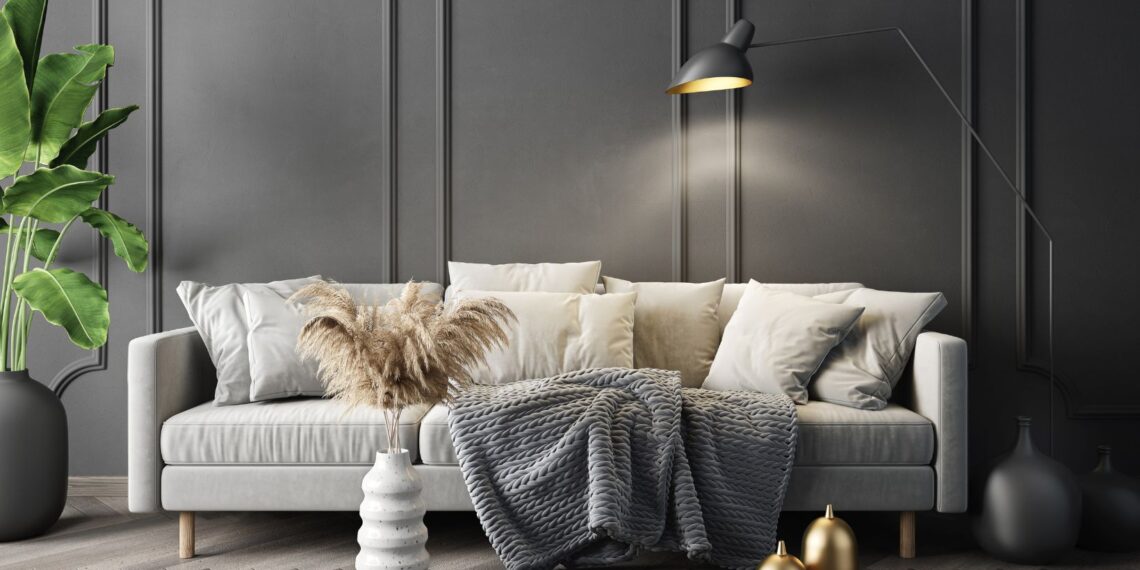Transforming a house into a home can feel like an epic quest, but fear not—it’s easier than finding a matching sock! With a sprinkle of creativity and a dash of style, anyone can turn their living space into a haven that screams “homemendous!” Whether it’s jazzing up a drab corner or going all out with a room makeover, the right decor can breathe life into any space.
Understanding Your Space
Understanding the space within your home is crucial for effective decoration. It involves assessing the layout and identifying personal style preferences.
Assessing Your Home’s Layout
Assess the overall layout of each room to identify potential challenges and opportunities. Open floor plans may require distinct zones for various activities. Rooms with limiting dimensions need strategic furniture placement for functionality. Consider the flow of movement throughout the home; ensure that pathways are clear and intuitive. Take precise measurements of key areas, noting the dimensions of furniture and fixtures. Create a simple floor plan to visualize where items might fit. This exercise provides insight into optimizing the use of space while maintaining comfort.
Identifying Your Style
Identifying a personal style shapes the entire decorating process. Explore different design styles such as modern, traditional, or bohemian for inspiration. Gather images and examples from magazines or online platforms to refine taste. Use mood boards or digital tools to see how colors and textures interact. A cohesive color palette unifies the spaces, creating harmony throughout the home. Incorporate elements like art, textiles, and décor to reflect individuality. Prioritizing comfort alongside aesthetics ensures that the space feels inviting while showcasing personal flair.
Color Schemes That Work

Color schemes influence a home’s atmosphere significantly. Selecting the right colors creates a welcoming environment that enhances comfort.
Choosing the Right Palette
Determining a palette begins with understanding the room’s purpose. Soft, neutral tones encourage relaxation in bedrooms, while vibrant hues stimulate energy in kitchens. Exploring color psychology offers insights into emotional impacts. For example, blues and greens promote tranquility, while yellows and oranges energize a space. Coordinating colors with existing elements like furniture and flooring leads to a cohesive look. Testing paint samples on walls helps visualize the final result better. This hands-on approach facilitates informed decisions and enhances overall satisfaction with the finished product.
Incorporating Accent Colors
Accent colors bring depth and character to a neutral palette. Using complementary shades creates visual interest without overwhelming a space. For instance, a light gray room paired with bold navy or rich emerald accents adds sophistication. Decorative items like throw pillows and artwork serve as perfect opportunities for incorporating these colors. Experimenting with different textures alongside accent colors enhances the room’s dimension. Balance accents throughout the home for a unified theme. Successful integration of accent colors leads to an inviting and dynamic atmosphere.
Furniture Selection and Arrangement
Selecting furniture and arranging it effectively plays a vital role in home decoration. Thoughtful choices can elevate a room’s appeal while ensuring functionality.
Finding Functional Pieces
Functional pieces enhance both style and usability. Consider multi-purpose furniture like storage ottomans or convertible sofas to maximize space. Look for items that match the home’s aesthetic while saving room. Selecting furniture that suits the dimensions of each area ensures better flow and utility. For example, a sleek coffee table can create balance in a small living space. It’s also essential to prioritize comfort; a cozy chair invites relaxation. Focus on quality materials that withstand daily use. Incorporating these elements leads to a well-thought-out design.
Creating a Balanced Layout
Creating a balanced layout significantly affects a room’s visual harmony. Start by measuring each area to determine appropriate furniture sizes. Group similar items together to foster cohesion, such as arranging seating around a central coffee table. Leave clear pathways for easy movement throughout the space. When arranging pieces, anchor larger items against walls to open up the room. Utilize area rugs to define different zones, such as living and dining areas. Balance visual weight by distributing larger elements evenly across the space. Emphasizing these aspects encourages a functional and inviting atmosphere.
Accessorizing with Purpose
Accessorizing transforms spaces by adding character and personal flair. Thoughtful selection boosts both style and functionality.
Selecting Decorative Items
Decorative items define a room’s personality. Choose accent pieces like vases, art, and sculptures that resonate with individual style. Limit clutter by selecting a few bold items rather than numerous small ones. Position items at varying heights to create visual interest. Incorporate themed decor to maintain a cohesive aesthetic throughout the home. Opt for practical accessories, like decorative trays, which combine beauty with utility. Consider seasonal updates to refresh spaces and keep designs dynamic.
Layering Textures and Patterns
Layering creates a rich, inviting atmosphere. Combine materials such as wood, metal, and fabric to enhance dimensionality. Mix patterns thoughtfully to avoid visual chaos; for instance, pair florals with geometric designs for striking contrasts. Incorporate throw pillows and blankets to add warmth and comfort. Rugs serve both practical and decorative purposes by defining spaces and adding texture. Use window treatments to introduce softness, framing views while contributing to overall style. Aim for variety while ensuring harmony across textures and patterns for an engaging visual experience.
Personal Touches and Customization
Personal touches breathe life into a space. Customization allows individuals to express their unique personalities and styles through decor choices.
Displaying Personal Collections
Showcasing personal collections can transform spaces into conversations starters. Items like travel souvenirs, art pieces, or family heirlooms create meaningful focal points. Arranging collections on shelves or creating gallery walls invites admiration and adds character. Using varying heights and frames to display items emphasizes their uniqueness. It’s essential to curate the collection to avoid clutter while allowing the personality to shine through.
Creating a Unique Atmosphere
Setting a unique atmosphere enhances a home’s warmth and invites comfort. Incorporating elements such as scented candles, art, and music can evoke specific feelings and memories. Textiles like throws and cushions contribute to comfort while offering visual interest. Lighting options, ranging from fairy lights to statement lamps, adjust mood and ambiance easily. Personalizing spaces with carefully chosen decor items and practical elements encourages relaxation and satisfaction in the environment.
Conclusion
Transforming a house into a homemendous space is an exciting journey that reflects personal style and creativity. By focusing on strategic furniture arrangement color selection and purposeful accessorizing individuals can create a home that feels both inviting and unique.
Incorporating personal touches not only enhances the aesthetic but also fosters an emotional connection to the space. Ultimately it’s about balancing functionality with comfort while allowing individual expression to shine through. Embracing these principles will lead to a home that not only looks great but also feels like a true sanctuary.







